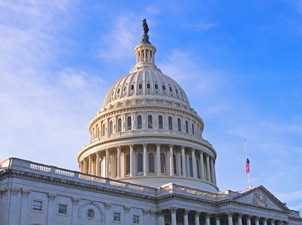
We Need a More Just and Humane Immigration System
Mercy Adoga
August 26, 2021
At NETWORK, we are advocating for a more just and humane immigration system especially at our southwestern border for all immigrants including Haitian, Afro-Caribbean, and African immigrants.
However, some of the Biden administration’s actions do not support such a system. On August 2nd, President Biden indefinitely extended Title 42 of the U.S. Code to prevent asylum seekers from coming to our borders . This is a flagrant violation of U.S. asylum laws, treaties, and the Constitution. The Biden administration’s misuse of Title 42 to expel asylum seekers puts all expelled immigrants especially black immigrants in grave danger of gang violence, kidnappings, and separates families. Since Biden took office in January of this year, NGOs have tracked at least 6,356 kidnappings, sexual assaults, and other violent attacks against people blocked at ports of entry or expelled.
President Biden also unveiled a blueprint that has been created for a fair, orderly, and humane immigration system. the Department of Homeland Security has followed up with proposed administrative regulations to flesh out the blueprint. NETWORK welcomes some of the proposed regulations such as those that will expand the categories of asylum seekers eligible to have their cases decided before U.S. Citizenship and Immigration Services (USCIS). These interviews allow asylum seekers to present their claims in a less traumatizing, non-adversarial setting and will contribute to reducing the immigration court backlog.
However, both the blueprint and proposed regulations allow the government to expand its use of expedited removal, provide only an immigration court “review” rather than an actual hearing, and end the essential life-saving safeguard of asylum office reconsideration of negative credible fear determinations.
These are harmful policies that have been tried, tested, and failed. NETWORK and other organizations have written to the Attorney General the reasons why expedited removal should not be used. These policies frequently lead to the unlawful deportation of people seeking asylum, who are often denied the chance to request protection by Customs and Border Protection (CBP) officers.
A new NETWORK and Kino Border Initiative joint report provides a snapshot of the CBP abuse at the border. All 35 cases recorded in this report say they asked for asylum but the CBP denied them their right to pursue their asylum cases and expelled them instead. The Administration’s choice of a deterrence policy over a just and humane one will needlessly subject families to abusive treatment and inhumane conditions in CBP and ICE detention cells as the government seeks to deport them
NETWORK Recommendations
At NETWORK we recognize that the current immigration processes occurring at the southwestern border are detrimental to immigrants. We would like to spread awareness about the dangers while also proposing potential solutions to address some of the concerns surrounding the immigration system.
Asylum seekers should enter into a welcoming, timely, and effective system rather than being subjected to rushed and inefficient screening and adjudication procedures. We ask for:
- The right to seek asylum restored at all points of entry at our southern border
- End the misuse of Title 42 at the U.S. Mexico border
- Improve the fairness of asylum office interviews and refer asylum seekers for full asylum interviews at their destination locations without the use of expedited removal — a fundamentally flawed process that endangers refugees
- Ramp-up case support initiatives and funding for legal representation, use legal parole authority and do not send people seeking U.S. refugee protection to immigration jails while their asylum cases are adjudicated.
- Support faith and community-based welcome organizations to provide welcome and temporary care in border towns and in the interior of the U.S.
- End immigration detention.
- Ensure that all asylum seekers have the right to legal representation not only legal orientation programs.
We hope that taking these steps among others will lead to a more timely, just, and effective immigration system that positively affects all immigrants including those who are Haitian, Afro-Caribbean, and African.







